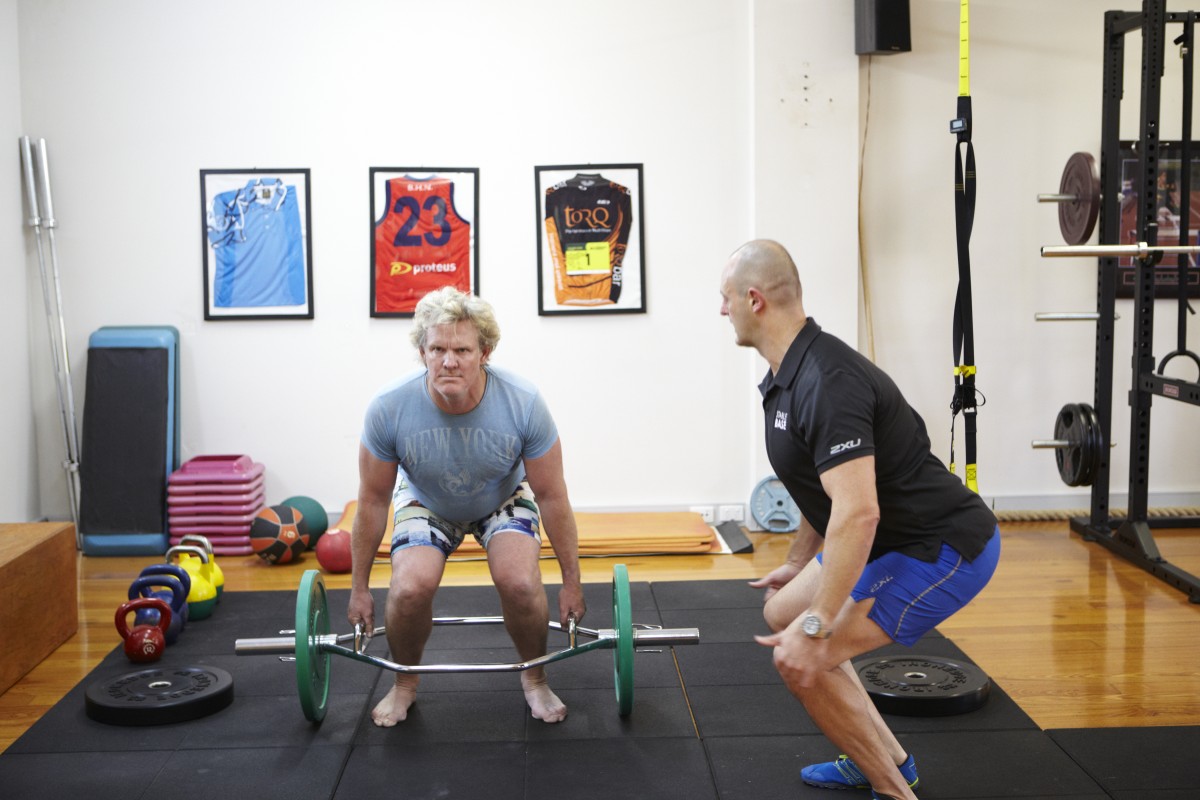Stable Base trainer and owner, Greg Jacobs breaks the myths on strength training!
#1. Lifting heavy weights is dangerous.
Wrong. Countless studies show that regular weight training results in less injuries than other sports and exercise regimens. In fact the number one reason for sportspeople to do strength training is injury PREVENTION.
Most injuries that do happen are ‘overuse’ type problems resulting from people doing low load/high repetition training.
Yes there are some exercises that have a high risk of injury if done incorrectly and there are some exercises that certain people should never do and that’s why you should work with a strength training specialist.
#2. Strength training will make you big and bulky.
Not true. Strength training will increase muscle size only slightly and that usually coincides with a reduction in body fat, so total body mass often doesn’t change or often decreases.
Some people use weight training and diet to increase their size (body building or hypertrophy training) this style of training is usually characterised by a moderate load, moderate numbers of repetitions and high volume of work. Unfortunately this style of training is the only style a lot of people are familiar with. This is NOT strength training, which is best characterised by high load, low number of repetitions and low to moderate total volume.
#3. Training with weights makes you tight, inflexible and ‘muscle bound’.
Badly designed and executed weight training makes you tight. As does high repetition movements like walking, riding, swimming.
Quality strength training will improve most people’s mobility.
At the Olympic Games the weightlifters are second in flexibility only to the gymnasts.
#4. Lift lighter weights more times if you:
a) just want to tone up
b) don’t want to get injured
c) if you are an endurance athlete,
d) if you are a woman.
This is a great example of a little bit of knowledge being a dangerous thing and what happens when that little bit of knowledge creeps into pop culture.
- Muscles tone up from being worked. It doesn’t matter how you work them and it happens very quickly.
- The more repetitions you do of a movement the more the movement deteriorates, the more your posture degenerates, the more your concentration declines, the more likely you are to get injured. It’s virtually impossible to lift something so heavy you hurt yourself. You will get hurt if you do something stupid whilst lifting something, and you are more likely to do something stupid whilst lifting something lighter 10 times than lifting something heavier 5 times.
- The value of strength training for endurance athletes is injury prevention and increasing power and acceleration. This is achieved by increasing maximal strength. (heavy load, low rep training) Muscular endurance is best achieved by doing the sport specific activity. A lot of endurance athletes and coaches avoid heavy weights because they (incorrectly) believe it increases their body weight.
- Heavy weights won’t make you big and bulky or look like a man. However they can improve bone density, improve the function of your hormonal system, improve your metabolism, improve your body composition, and improve your balance, coordination and flexibility. Lifting light to moderate weights doesn’t offer all of these benefits and doing too much ’cardio’ exercise is actually detrimental to all of the above.
 Greg Jacobs is a personal trainer and specialises in pilates, TRX and strength and conditioning training.
Greg Jacobs is a personal trainer and specialises in pilates, TRX and strength and conditioning training.
For more information on strength training and how you can benefit visit Stable Base Personal Training & Pilates or give the guys a call on 03 9888 4403

